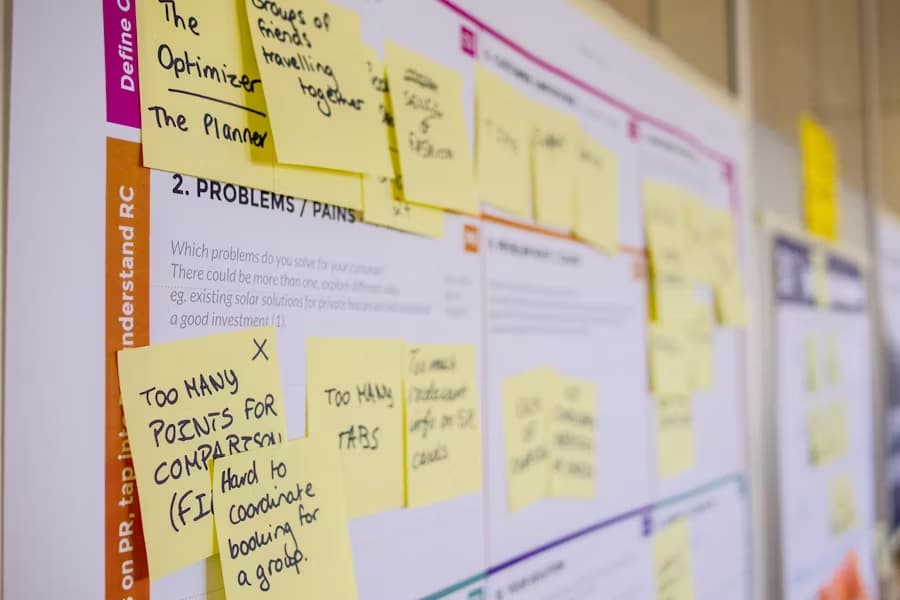Parents hold a pivotal position in steering adolescents towards mastering the art of time management. Through imparting pragmatic methods and extending support, teenagers can gradually embrace behaviors conducive to juggling their myriad daily responsibilities, coping with stress, and honing their focus on what truly matters. In the forthcoming piece, we shall delve into valuable insights aimed at aiding parents in cultivating crucial time management abilities in their teenagers, all without resorting to incessant reminders. Be prepared to discover effective means of fostering consistent routines, fostering a keen sense of time consciousness, and fostering organizational techniques tailored to suit the dynamics of your family unit.
Fostering Teen’s Proficiency in Time Management
Assisting your teenager in mastering time management requires a delicate balance between academic pursuits, relaxation, and recreational activities. Emphasize the importance of segmenting their timetable to accommodate schoolwork, sports, social engagements, and moments of tranquility. Cultivate the habit of structuring routines that allocate appropriate slots for assignments, extracurricular engagements, and periods of repose. Aid them in establishing objectives and setting a timeline, breaking down immense tasks into digestible segments.
Anxiety is a prominent factor contributing to time administration challenges amongst adolescents. In the capacity of a caregiver, exercise understanding and provide solace during their battles, simultaneously offering counsel and instruments, such as alarms, to help them monitor their usage of time. Diminish unnecessary stress triggers and establish a serene home atmosphere conducive to an ideal work-life equilibrium.
Promoting a Balanced Lifestyle for Teenagers
Inculcating a sense of equilibrium between school, leisure, and downtime in your teenager’s routine is a critical aspect of reinforcing their time management skills. Collaborate with them in identifying their academic responsibilities, whilst also ensuring they have ample time to invest in athletic activities, nurturing friendships, and pursuing hobbies. Inspire your teenager to construct systematic routines that provide room for scholastic duties, extracurricular endeavors, and unwinding periods. Assist them in formulating objectives and timelines to deconstruct large tasks into achievable milestones.
Undeniably, anxiety casts a large shadow, impacting teens’ ability to manage time efficiently. Adopt a supportive role and express empathy towards their dilemmas, whilst offering practical solutions such as time-tracking tools. Endeavor to alleviate unnecessary stressors and facilitate a peaceful home environment that fosters a sense of balance between work and leisure.
Tips for Proper Time Management for Teens:
- Establish a Routine: Consistency is key. Having a daily routine can help manage time effectively and reduce anxiety. This should include times for studying, breaks, meals, and recreational activities;
- Use a Planner: Planners are essential tools for time management. They can help track deadlines and keep a record of completed tasks;
- Prioritize Tasks: Not all tasks are created equal. Teach your teen to identify the most important tasks and do those first;
- Limit Distractions: Encourage them to switch off their phone and avoid social media during study time;
- Encourage Breaks: Regular breaks can increase productivity;
- Get Enough Sleep: Sleep is often overlooked but is essential for concentration and productivity;
- Practice Mindfulness: Mindfulness helps reduce stress and improve focus, enhancing overall time management.
Managing Conflicts & Delegating Duties Efficiently
Adolescence is known to be a period rife with multiple commitments, ranging from school to hobbies and social activities. These overlapping responsibilities can sometimes lead to conflicts, posing challenges to effective time management. Equip your teens with skills to delegate tasks – whether it’s domestic duties, academic projects, or other obligations. Cultivate an atmosphere of open dialogue and negotiation within the family and encourage them to use these skills with peers and educators to evenly spread responsibilities.
Here are key strategies to help teens manage conflicts and delegate tasks:
- Resolving conflicts: Encourage your teen to communicate openly about their challenges. Active listening and compromise can go a long way in resolving conflicts;
- Delegating responsibilities: Guide them in identifying tasks that can be shared with siblings, peers, or group members. This not only lightens their load but also promotes teamwork and cooperation;
- Negotiating fairly: Teach your teen to negotiate their responsibilities with a fair and understanding stance, ensuring everyone involved agrees to the task distribution.
Avoid the temptation to constantly remind teenagers of their responsibilities. Frequent nagging can undermine their sense of responsibility and negatively impact their efficiency. Instead, help them establish a pattern of defining their expectations clearly and understanding the repercussions of not meeting them. This approach increases their accountability and guides them in managing their tasks independently and efficiently.
Celebrating Milestones and Recognizing Improvement
Acknowledging your teenager’s progress in managing their time effectively can play a crucial role in enhancing their self-confidence and motivation. Such recognition can instill a positive perspective toward various facets of their life, including academic pursuits, domestic responsibilities, and recreational activities.
Here are some areas where you can reward progress and celebrate success:
- Academic Performance: Celebrate the enhancement in their grades as a testament to their improved time management skills. Make it evident that efficient time management is directly proportional to academic success;
- Athletic Endeavors: If your teen is involved in any sports activities, either at a competitive or recreational level, appreciate their commitment to balancing it alongside other obligations;
- STEM Involvement: Support their interest and progression in STEM subjects as these areas offer rewarding academic and career opportunities;
- Household Duties: Value the effort they put into performing household chores promptly, thereby maintaining a tidy and organized living space;
- Fulfilling Commitments: Applaud your teenager’s ability to uphold their commitments and efficiently manage their time, showcasing responsibility and maturity.
By reinforcing your teenager’s efforts in time management, you are contributing to their transformation into accountable adults, better furnished to navigate life’s various demands.
Mastering Time Administration with Practical Resources and Approaches
Exploring various methods to manage time effectively can be extremely beneficial for teenagers. These tools can assist in breaking down colossal tasks into manageable sub-tasks and keeping track of time effectively. One such approach is the renowned Pomodoro Technique.
Cultivating Focus with the Pomodoro Technique:
The Pomodoro Technique is an acclaimed time administration strategy that suggests splitting tasks into smaller, more digestible intervals. This method advocates for concentrated effort over 25-minute periods, known as “Pomodoros,” followed by a brief interval of rest. This cycle engenders a rhythm that can bolster focus and dramatically reduce procrastination.
Propose to your teenager the use of a timer or a dedicated Pomodoro application to oversee their Pomodoros for scholastic tasks, domestic chores, and any additional duties that necessitate attention. This technique serves to reduce the overwhelming nature of large tasks, allowing them to tackle each fragment with renewed motivation after each break.
Here are some additional tips to maximize the effectiveness of the Pomodoro Technique:
- Clear the Workspace: Ensure that the environment is free from distractions before starting a Pomodoro session;
- Prioritize Tasks: Identify the tasks that require immediate attention and tackle them first;
- Use a Dedicated Timer: A dedicated timer or app that includes rest periods can be more effective than a regular timer;
- Be Consistent: The Pomodoro technique yields the best results when used consistently over a long period.
Utilizing strategies like the Pomodoro Technique can empower teenagers to take control of their time, fostering greater productivity and efficiency. In turn, it not only enhances their academic performance but also equips them with an essential life skill that serves them well into adulthood.
Harnessing the Power of Timers and Organizers
The use of timers and organizers can significantly enhance the time management abilities of teenagers. These tools promote organization and effective time allocation, which are crucial skills for academic success and beyond. Whether traditional or digital, organizers provide a platform for scheduling, deadline tracking, and time apportionment for various activities, including homework, social gatherings, and extracurricular activities. They can also incorporate task checklists and meal plans for seamless daily organization.
Here are some practical ways to guide your teen in making effective use of timers and organizers:
- Crafting Task Lists: Advise your teen to create daily, weekly, and monthly task lists. This can provide them a clear vision of their responsibilities and foster a sense of accomplishment as they tick off completed tasks;
- Maximizing Timer Use: Encourage the use of timers to delineate specific periods for focused work, much like the Pomodoro Technique. This approach can dramatically improve concentration and productivity levels;
- Prioritizing Tasks: Teach your teen to categorize tasks based on urgency and importance. This can ensure critical deadlines are met, and time is allocated efficiently;
- Scheduling Leisure Time: Remind them to include break times and leisure activities in their schedules. Recharging is just as crucial to productivity as work itself.
With the efficient utilization of timers and organizers, teenagers can gain control over their time, reduce stress, and improve their overall productivity. These tools foster organizational skills, timely completion of tasks, and an overall sense of accomplishment, essential aspects that contribute positively to their personal development.
Accelerating Productivity with the Eisenhower Box
The Eisenhower Box, also known as the Eisenhower Matrix, is a practical tool that aids in organizing and prioritizing tasks. Created based on a quote by President Eisenhower: “I have two kinds of problems: the urgent and the important”, this tool can be beneficial for teens juggling various responsibilities while also combating digital distractions.
Setting up an Eisenhower Matrix involves dividing a canvas – be it paper or digital – into four distinct categories:
- Critical and Immediate: These are high-priority tasks that necessitate instantaneous attention, encompassing looming deadlines and pressing situations;
- Critical but Not Immediate: Tasks that are integral for achieving long-term aspirations, such as preparing for examinations and progressing on extended projects, fit into this category;
- Not Critical but Immediate: These tasks demand prompt action but may not substantially impact long-term aims. Examples include answering messages or attending to routine chores;
- Neither Critical nor Immediate: This category houses low-priority tasks that can be perceived as pleasurable distractions, such as browsing through social media or watching television.
Adopting the Eisenhower Matrix methodology allows teenagers to classify their responsibilities and to-do list items effectively. This approach promotes insightful allocation of time based on the criticality and immediacy of tasks. Consequently, it can substantially enhance their effectiveness in managing their time while simultaneously improving their focus and productivity.
Here are a few suggestions to successfully implement the Eisenhower Matrix:
- Create a List: Begin by jotting down all pending tasks, then proceed to categorize them into the four quadrants of the Eisenhower Matrix;
- Prioritize Accordingly: Guide your teen to focus primarily on tasks deemed Critical and Immediate and then move on to other categories;
- Be Flexible: Realize that some tasks may shift between categories based on changes in deadlines or other factors;
- Review Regularly: Encourage your teen to revisit their Eisenhower Matrix regularly to ensure they remain focused and aligned with their priorities.
Constructing a Robust Time Administration Framework
Deciphering Priorities
Coaching your teenager to decipher their priorities based on importance and urgency can be a game-changer. A visual aid, such as a table or chart, can be instrumental in this process. This table should ideally include separate columns for tasks, deadlines, and priorities, enabling them to organize their responsibilities effectively. Encourage a practice where high-priority tasks are attended to first and larger projects are dissected into smaller, more manageable segments.
Here are a few steps to setting clear priorities:
- Categorize Tasks: Segregate tasks into different categories based on urgency and importance.
- Visualize Tasks: Use tables, digital tools, or organizers to visually arrange all tasks;
- High-Priority First: Reinforce the importance of attending high-priority tasks before moving on to others;
- Break Down Tasks: Guide teens to break down larger tasks into smaller achievable tasks to reduce feeling overwhelmed.
Formulating Goals and Deadlines
It’s vital to instill a sense of goal orientation in teenagers. This skill can be vital in academic pursuits and later stages of life. Urge your teenager to formulate objectives for both immediate and extended activities. Creating a comprehensive tracking system for monitoring progress and due dates can be quite beneficial. This can be accomplished using traditional calendars, personal organizers, or digital time management tools. As a guiding figure, offer advice and assistance in setting attainable, practical goals, underscoring the importance of steadfastness and regularity in the goal-setting process.
Here’s how to effectively set and track goals:
- SMART Goals: Encourage teens to set Specific, Measurable, Achievable, Relevant, and Time-bound (SMART) goals;
- Use Digital Tools: Utilize digital time management tools for setting and tracking goals;
- Regular Progress Check: Set aside regular intervals to check progress and recalibrate goals if necessary;
- Consistency is Key: Emphasize the importance of consistency in achieving long-term goals.
Structuring Day-to-Day Routines for Optimal Efficiency
Developing a well-structured daily schedule can help teenagers manage their time more effectively. Such a system provides predictability, instills a sense of responsibility, and promotes balance among academic commitments, personal interests, and relaxation time.

Morning Rituals: Kick-starting the Day
A morning routine can set the tone for the rest of the day. Guide your teen in creating a schedule that includes activities such as personal hygiene, breakfast, and time for self-preparation for the day’s schedule. Incorporate elements that promote self-discipline, organization, and time awareness. A timer could be used innovatively to make these routines engaging and fun.
Tips for an efficient morning routine:
- Prepare Ahead: Encourage your teen to prepare for the morning the night before – this could include setting out clothes and packing up school material;
- Healthy Breakfast: Emphasize the importance of a healthy breakfast for energy and focus throughout the day;
- Timed Activities: Create a game out of morning activities using a timer to infuse fun and efficiency.
Afternoon/Evening Rituals: Balancing Work and Play
After-school hours should be smartly divided between homework, extracurricular activities, and rest. Help your teen allocate specific time slots for each task to maintain a balance between productivity and relaxation.
Tips for a productive afternoon-evening routine:
- Homework Slot: Designate a specific timeframe for homework to ensure consistent academic focus;
- Downtime: Allocate time for relaxation and recreational activities to recharge and reduce stress;
- Extra-curricular Activities: Make room for hobbies and interests to foster creativity and holistic development.
Bedtime Routine: Unwinding and Resetting
A good night’s sleep is essential for overall health, concentration, and productivity. Encourage practices that aid relaxation before bedtime, like reading or taking a warm bath.
Tips for a calming bedtime routine:
- Winding Down: Encourage activities that help unwind, like listening to calming music or practicing mindfulness;
- Screen-Free Zone: Advocate for a screen-free hour before bed to contribute to better sleep quality;
- Consistent Sleep Time: Encourage a consistent sleep schedule to maintain a healthy sleep cycle.
Conclusion
In conclusion, parents serve as the cornerstone in nurturing their teenagers’ time management skills, pivotal for their success and well-being. By providing practical guidance and unwavering support, adolescents can cultivate habits that empower them to navigate the complexities of their daily lives with greater ease and efficiency. Through the exploration of effective tips outlined in this article, parents can effectively foster routines, time awareness, and organizational strategies tailored to their family’s unique dynamics, all while maintaining a positive and supportive environment. Embracing these approaches ensures that teenagers are equipped with the necessary tools to thrive both academically and personally, setting them on a path toward a fulfilling and balanced future.



